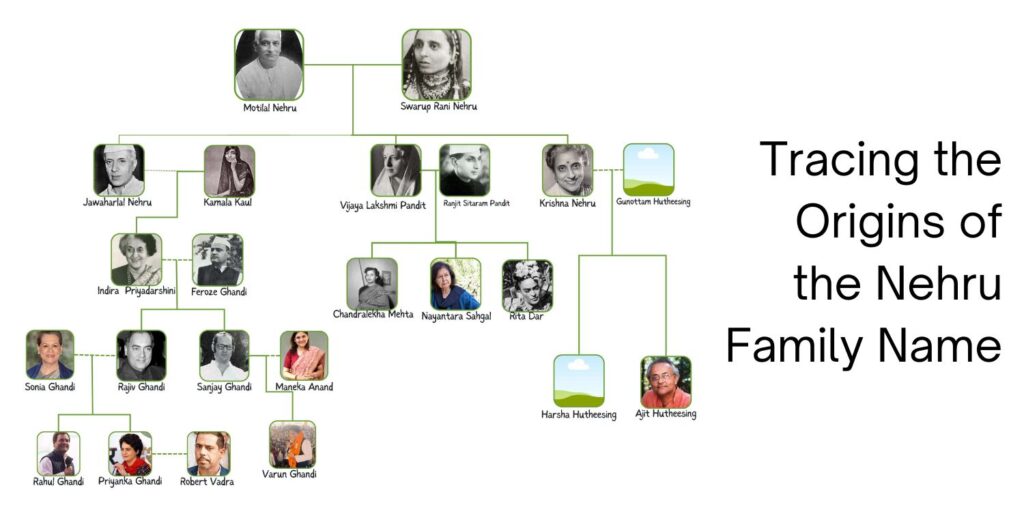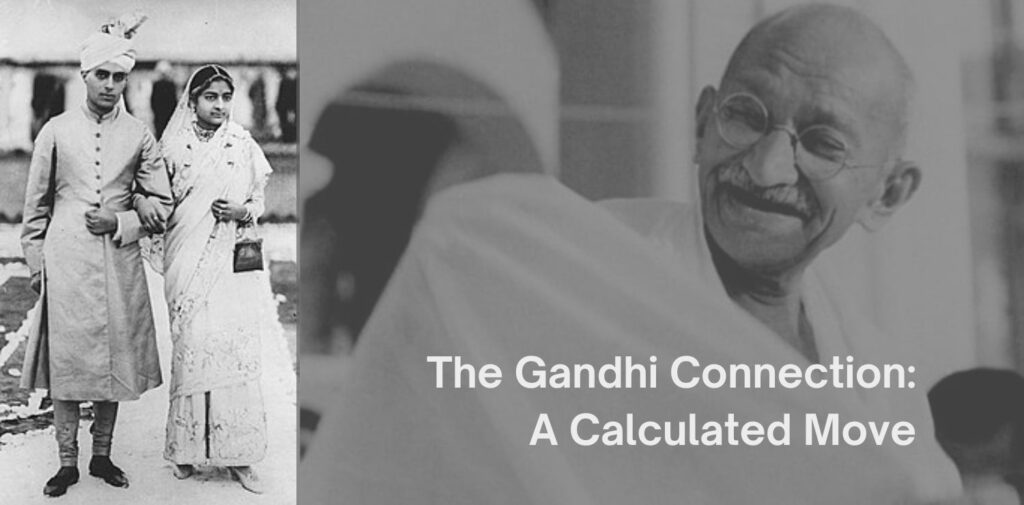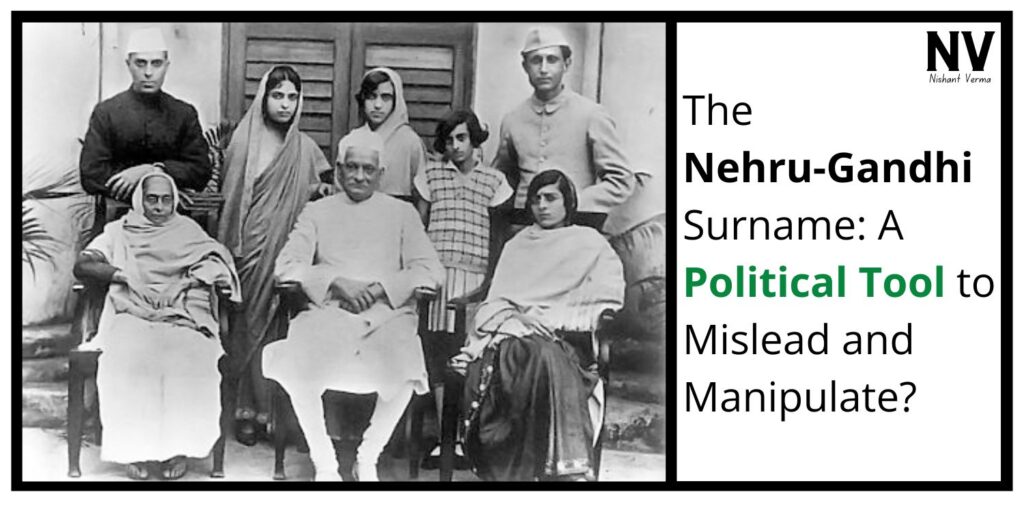The Nehru-Gandhi surname is arguably one of the most powerful political brands in India. But is it genuinely rooted in history, or is it a manufactured identity meant to manipulate the Indian public? For decades, the Indian populace has revered the “Gandhi” name, associating it with the principles of peace and sacrifice established by Mahatma Gandhi. But the truth is that the Nehru family has no blood relation to Mahatma Gandhi. So, why adopt the “Gandhi” surname?
Tracing the Origins of the Nehru Family Name
The story begins with Jawaharlal Nehru, India’s first Prime Minister. His father, Motilal Nehru, was a prominent lawyer and member of the Indian National Congress, hailing from a Kashmiri Pandit family. The surname “Nehru” itself is derived from the word “nehar” (canal) due to the location of the family house near a canal in Delhi. The Nehru name was well-known, but it didn’t carry the political weight that could easily sway the masses.

The Gandhi Connection: A Calculated Move
The connection to the “Gandhi” name began with Jawaharlal Nehru’s daughter, Indira Priyadarshini Nehru, who married Feroze Gandhi, a Parsi by birth. It’s crucial to note that Feroze Gandhi was not related to Mahatma Gandhi in any way. The marriage, however, offered an opportunity for the family to adopt the Gandhi name and build a political dynasty on the revered image of the Mahatma. But this raises an important question: why was it so important for the Nehru family to adopt a name that held no familial relation?

The answer lies in the perception game. Mahatma Gandhi was, and still is, a symbol of peace and the fight against colonial rule. Associating with his name could automatically lend an aura of legitimacy and reverence to the Nehru family, even though their political ideologies and policies often diverged from the Mahatma’s principles.
Exploiting the Gandhi Brand: Political Strategy or Public Deception?
After Indira’s marriage to Feroze, her children, Rajiv Gandhi and Sanjay Gandhi, continued to use the Gandhi surname. It’s worth questioning why Indira chose to adopt the Gandhi name fully instead of retaining Nehru. Was it an attempt to leverage the influence and popularity of Mahatma Gandhi to consolidate power and garner mass support?
This manipulation became more evident as time went on. The average Indian voter, often unaware of the family’s true lineage, came to associate the Nehru-Gandhi family with the Mahatma, despite there being no blood relation. The Gandhi surname became a political asset—an emblem that politicians like Indira, Rajiv, Sonia, and Rahul Gandhi used to solidify their presence in Indian politics.
Distorting Public Perception: A Questionable Legacy
The strategic adoption of the “Gandhi” surname has undoubtedly created a political legacy, but it has also distorted public perception. Many Indians genuinely believe that the Nehru-Gandhi family is directly descended from Mahatma Gandhi, which couldn’t be farther from the truth. This deliberate confusion serves only one purpose: to keep the family’s political influence intact by exploiting a revered name.
By the time Rajiv Gandhi became Prime Minister, the “Gandhi” surname was firmly embedded in the psyche of the Indian public. The surname, now inseparable from political power and influence, has been used repeatedly to evoke sentiments of loyalty, trust, and respect. This has often distracted from the political failures, corruption scandals, and governance issues that have plagued the family over the years.
The Need for a Historical Reassessment
It’s high time that the public revisits history with a critical eye and acknowledges how a mere surname change has shaped the political narrative of the country. The Nehru-Gandhi dynasty has built its foundation on a borrowed legacy, one that thrives on the emotional manipulation of the masses. Their political dominance over the decades was not solely due to their governance capabilities but largely due to the emotional and psychological leverage provided by the “Gandhi” surname.
The question we must ask ourselves is: If the surname were not “Gandhi,” would the political trajectory of the family have been the same? Would the public have been so easily swayed by their claims and promises? The answer is likely no.
Reclaiming the Truth: Debunking the Myth
The Nehru-Gandhi name game is a glaring example of how history can be distorted and used as a political weapon. It’s not just about one family; it’s about the manipulation of a nation’s sentiments, beliefs, and, ultimately, its vote.
By adopting the Gandhi surname, the Nehru family established a direct link with India’s independence movement, even though their contributions were quite distinct from those of Mahatma Gandhi. The adoption of the Gandhi name appears to be less about respect for the Mahatma’s ideals and more about using his popularity to establish an unshakeable political foothold.
Conclusion: Nehru-Gandhi Surname
The Nehru-Gandhi surname saga is a lesson in political branding and manipulation. It’s a reminder of how names and legacies can be hijacked to serve vested interests. As citizens, it’s crucial to be aware of the historical truth behind political figures and not be swayed by emotionally charged narratives.
Only by understanding the real history behind the Nehru-Gandhi surname can we begin to disentangle fact from fiction and recognize the political strategies at play. The “Gandhi” in Nehru-Gandhi is a borrowed legacy, wielded to influence, manipulate, and, ultimately, mislead.




